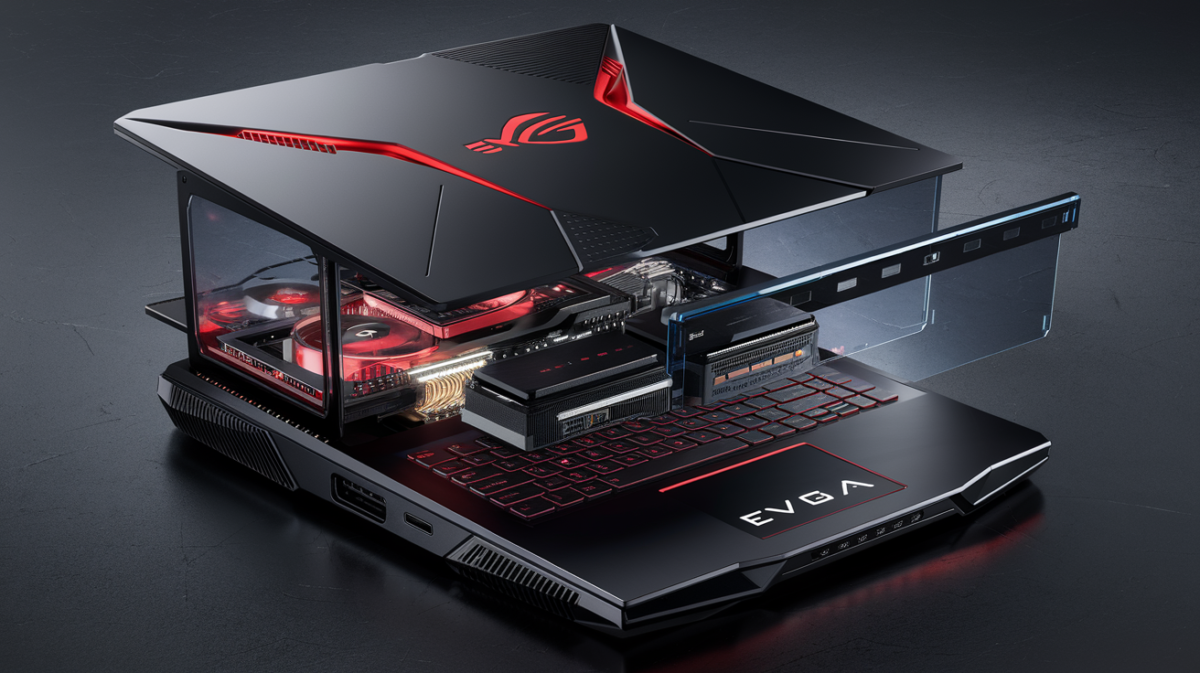Alright, let’s get straight to it. Why did EVGA stop making GPUs? If you’ve been gaming or building PCs for a while, you’re probably aware of the buzz. EVGA was one of the top dogs in the GPU game, especially when you think of their partnership with NVIDIA. But they made a surprising exit from the market. So, what’s the real deal here?
The Unplugging of a Major Player
First off, EVGA’s decision didn’t just spring up overnight. There were real reasons and strategies behind it. Let’s chat about some reasons why they might have folded their GPU division, something that’s been on the minds of tech enthusiasts everywhere.
EVGA and NVIDIA: A Rock-and-a-Hard-Place Relationship
You’ve heard it before—relationships are complicated. Well, EVGA’s bond with NVIDIA was no exception. NVIDIA was the chip supplier for EVGA’s GPUs. But over time, issues started bubbling up, kinda like when too many cooks spoil the broth.
-
Margins Squeeze: EVGA reportedly faced thin profit margins. NVIDIA’s pricing structure meant EVGA wasn’t making much profit per GPU sold. That’s like selling lemonade at a kid’s stand and barely covering the cost of lemons.
-
Control Over Pricing: NVIDIA called the shots, which left EVGA feeling boxed in. They had little control over the pricing strategies or how they positioned their products in the market. Imagine trying to run a race but having someone dictate your pace—that’s what it felt like.
It’s no wonder EVGA might have felt like they were in a corporate chokehold. Can you blame them for wanting out?
Addressing the Market Dynamics
Now, let’s zoom out a bit. The GPU market was getting heated with intense competition. Brands like ASUS, MSI, and Gigabyte were all jockeying for a piece of the pie. In such a crowded space, standing out becomes a Herculean task.
Flooded Market: When everyone’s selling similar products, you either have to stand out or perish. EVGA might have found it hard to truly differentiate themselves in a sea of GPUs that were all flaunting similar specs.
Volatility in Demand: The demand for GPUs can be as wild as the stock market. Remember the crypto boom? Prices and demands were through the roof, and then, bam! Things cooled off. Managing demand like this is tricky, my friends.
EVGA’s New Direction
Okay, enough about the past. What’s next for EVGA? Once a company steps out of a race, they don’t just shut doors and hibernate. They reimagine, they pivot, and they adapt.
-
Shifting Focus: EVGA isn’t just about GPUs; they’ve been dabbling in other tech products too. From power supplies to gaming laptops, they’re placing their bets on different areas.
-
Building Brand Identity: Having the flexibility to decide their path allows EVGA to build a brand identity that isn’t overshadowed by anyone else. They’re like the rock band that decided to go solo for a while.
What Does This Mean for You and Me?
Alright, let’s get real for a second. What does EVGA’s exit from the GPU market mean for us, the consumers? Does it shake up our plans, or is it just another headline?
For the Gamers
Gamers are key players in the GPU saga. EVGA’s departure might have you wondering where to look if you were loyal to their brand. But don’t fret too much. There are still plenty of GPU options out there, and honestly, this change might even shake the market enough to give birth to new players or innovations.
For the PC Builders
If you’re a DIY enthusiast building your own rig, you might miss EVGA’s stellar customer service and unique offerings. But it’s not game over. This could mean more competitive pricing from other GPU brands to fill the void left by EVGA.
For Everyone Wondering “What’s Next?”
In a market always evolving, companies will come and go. But each change leads to opportunities—new tech, improved offerings, and better pricing. It’s a circle of life type of deal.
Why This Is a Big Deal in Tech
Let’s pull back a bit and see the bigger picture. Why does the exit of a single company matter in the broader landscape of tech?
Change and Innovation
Change drives innovation. When a solid player like EVGA exits, it disrupts the comfort zone, making room for new ideas. It forces existing companies to innovate and rethink strategies. Essentially, it’s like shaking the tech tree to see what new fruits fall.
Lessons in Business Dynamics
Business is as much about personnel dynamics as it is about products. The EVGA-NVIDIA story is a rich example of how partnerships can make—or break—a market presence.
Wrapping It Up
So, why did EVGA stop making GPUs? It boils down to the business dynamics, competition, and strategy shifts. It’s a story with lessons not just for other companies, but for us as consumers. Keep an eye out, though—EVGA’s next move might be even more surprising.
In the end, maybe this isn’t just about GPUs and tech. It’s about adapting, evolving, and choosing where your passion truly lies. Just like we pivot in life, EVGA is doing the same in a fast-evolving tech game. If you’ve ever faced a big decision, you get it, right?
So next time someone asks, "Why did EVGA stop making GPUs?" you’ll know the scoop.







